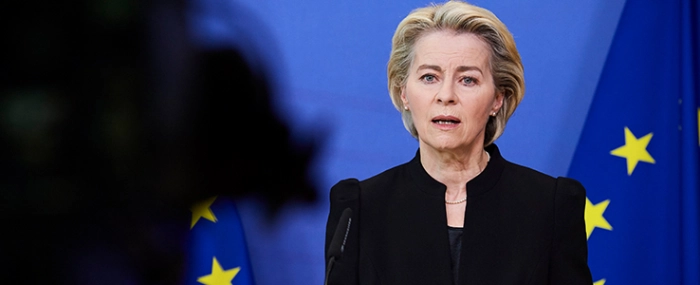
'20% of global chip production should be in Europe by 2030'
In a ‘State of the World' special address by President of the European Commission, Ursula von der Leyen, at the World Economic Forum on January 20, the president brought up the fact that the European need for chips will double in the next decade – and that we don’t have the means to supply this.
Demand for semiconductors is skyrocketing, von der Leyen said as she pointed out that the world is growing more and more dependent on semiconductors and that chips has found its way into products where they didn’t necessarily exist before.
“There is no digital without chips. And the European need for chips will double in the next decade. This is why we need to radically raise Europe's game on the development, production and use of this key technology,” von der Leyen said.
Europe is however strong in specific areas; which the president also mentions. As a region, Europe is touted as a semiconductor research stronghold – think power electronics, or chips for the automotive and manufacturing industries. The region does indeed have a strong footing here. And likewise Europe is well positioned in terms of the materials and equipment that are needed to run large chip manufacturing plants.
“But Europe's global semiconductors market share is only 10% and today most of our supplies come from a handful of producers outside Europe. This is a dependency and uncertainty we simply cannot afford. By 2030, 20% of the world's microchips production should be in Europe. Keep in mind that the world's production itself will double. This means quadrupling today's European production. We have no time to loose,” the president said as she confirmed her intent to propose the European Chips Act in early February.
The European Chips Act is aimed at helping the region make progress across five different areas. It is said to firstly strengthen Europe’s research and innovation capacity; it sill also work towards ensuring European leadership in design and manufacturing. Thirdly, it will further adapt EU’s state aid rules under a set of strict conditions; something that will allow public support for European ‘first of a kind' production facilities that benefit all of Europe, von der Leyen explains.
Fourthly, the Act also aims to improve Europe's “toolbox” to anticipate and respond to shortages and crises in order to secure supply. And fifth, the Act will support smaller, innovative companies, in accessing advanced skills, industrial partners and equity finance.
von der Leyen also underlined that Europe always will work to keep global markets open and connected. But also saying that Europe do need to tackle the bottlenecks that slow down its own growth – in order to become a strong player, not just in some niches, but throughout the whole value chain.
“We will create more balanced interdependencies. And we will build supply chains we can trust by avoiding single points of failure,” the president concludes.


